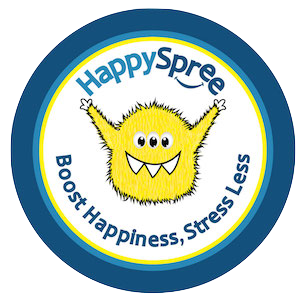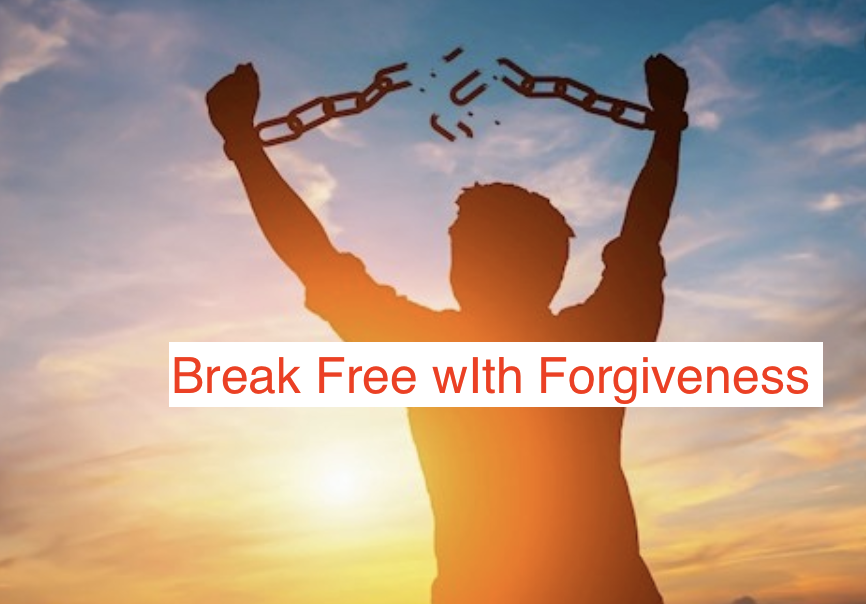To forgive is to set a prisoner free and discover that the prisoner was you.
–Lewis B. Smedes
I grew up in the snowy mountains of Park City, Utah a perfect metaphor for my unforgiving heart. My easy childhood had minor forgiveness incidents, but I had little guidance from my parents and none from religion, and this left me unprepared for the pain of a long-term unhappy marriage. Indeed, as my then-husband struggled with a painful issue (I have promised my kids to keep this issue private), I had little sympathy and blamed him for the negative impacts on our family.
Did I want to forgive my ex, as part of a forgiveness assignment for my grad school psychology class?
Absolutely not!
I can easily find empathy for people other people trying to cope with serious issues, and their friends and families, but could I use my under-expressed character strengths of forgiveness and prospective to forgive my ex? Forgiveness is an important part of good relationships, so focusing on strengths can improve well-being and future relationships.
I have forgiven others for hurts, but not him. I felt his wrongs were too grievous for forgiveness, as these hurts have caused my kids and me deep pain. When I think about this, I feel sad and mad, but worse, I experience PTSD symptoms.
Specifically, intrusive memories well up, anxiety rises, I have trouble breathing, and I feel like I’m suffocating. These symptoms have led to intimacy and commitment issues in new romantic relationships, and I find myself mistrustful as well. Although I can’t find research studies on unhealthy relationships and PTSD, I suspect these relationships are, indeed, a cause of PTSD. While in graduate school I am discovering areas for future focus, and this may be something I would like to pursue.
I realize what happened to me is not ok, but I am divorced now, and working to create a happy life for my kids and me. In fact, my struggle has inspired me to learn how to best help others that are struggling, and that’s why I’m in graduate school, at the moldy-oldy age of 53.
Upon reflection, I can find empathy for my ex, struggling to do his best amidst adversity, just like me. His negative childhood impacted his future. In fact, my ex told me that as a child, he would hide every single day from his hostile father. I can feel empathy for this little boy without help or options. He grew up thinking this behavior was normal, and later, he wasn’t acting to hurt me, but to escape past memories, and numb the pain of our eroding marriage.
Also, my forgiveness challenge paled in comparison to a video, in which a mother forgave her son’s killer. I decided to direct loving kindness meditation towards my ex as a step towards forgiveness.
This letting go of anger could lessen my stress when thinking of my ex, or encountering him, and also manage my “hot button” triggers. Indeed, being merciful to someone that has wronged us increases life meaning and happiness by doing good (Dunn, 2017). Additionally, loving kindness meditation strengthens acceptance, forgiveness, generosity, kindness, and trust according to Mindfulness Expert, John Kabat-Zinn. Also, forgiveness does not excuse bad behavior or make it ok.
Forgiveness is not about the other person, but about releasing ourselves from hurt, bitterness, and anger.
Ruminating about my past hurts me again every time I think about these painful memories. The brain registers the same pain whether it’s an injury or a memory. So, to end this, I decided to try forgiveness. I used Zinn’s mantra:
- May I be safe.
- May I be happy.
- May I be healthy.
- May my life unfold with ease.
I next directed these words towards one of the kindest people I know, Kathy Anderson. Then I directed them towards a stranger, then I took a deep breath, and directed them to my ex.
As I thought of my ex, a rush of empathy filled me, and I began crying. I pictured him as a child, hiding from his hostile father, and as a man, having to face the break-up of his family, and live with his kids part-time.
This empathy caused the impossible to happen: I forgave my ex. Doing this triggered a rush of happiness and well-being, and for the first time, I wished him happiness and well-being in the future.
Surprisingly, this wasn’t the end of my experiment. I began thinking about the role I had played in our negative relationship, offering coldness and less and less love, when my then-husband needed empathy and compassion. Also, my decision to end my marriage flooded my ex and my kids with pain. As a result of this, guilt and rumination weighed me down many days.
This exercise had made me realize I hadn’t wanted to end my marriage, but I couldn’t live with the stress anymore. I had done my best under the circumstances, and I suddenly felt an urge to forgive myself, but could I do it?
Maybe I could. I directed the loving kindness meditation to myself once more, focusing on forgiveness. Through tears, I felt a now-familiar surge of happiness and well-being, and my heart felt like it expanded, just like the Grinch’s. Forgiving my ex had provided the perspective and self-compassion to realize I was my prisoner. I could then end my rumination, forgive myself, and free myself from mental jail.
Who else could use forgiveness?
Find happiness now by forgiving someone. If needed forgive yourself too.
Want more happiness and to track your happiness trends? Join HappySpree



